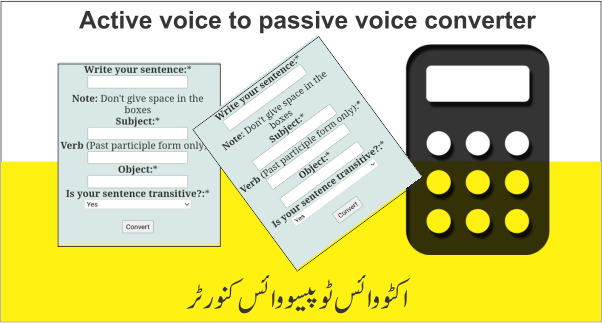|
This is 16 types of noun Big Guide with free Urdu PDF download. We have collected all the types of noun that were available after our extensive study on the topic. We have done it so that this post should be a detailed analysis of all the kinds of noun.
We believe in credibility that may only come with effectiveness of this post on the part of learners of English grammar. We have maintained that effectiveness through the following
time-tested strategies; 1. Our consideration that how quick students can learn about noun and all of its kinds 2. Increasing the number of students with helpful free Urdu
pdf and video material In order to achieve the above goals we have made our lesson task oriented to have speedy learning on the part of students in teaching noun and all of its kinds. The lesson is therefore comprised upon the following; 1. A detailed analysis of 16 kinds of noun in English 2. Free Urdu downloadable PDF version on kinds of noun (اسم) 3. Detailed Urdu video on all the kinds of noun (اسم)
So if you cannot read and understand English on this page, just don’t worry. You can either download the easy PDF version from this page on what is noun and what are its kinds or watch the video. So, now you see, this lesson post on all types of noun is for all types of students on English grammar. That includes quick and slow learners, school and college students, village and city students and the students from government and private schools. You have many options to make best use of this lesson, and once you go through this post I can hardly think you could ever have a problem in understanding noun and its kinds. This site, other way round, is the definitive English grammar course in Urdu and English with pdf downloadable version and Urdu videos on all its pages. A lesson a day will considerably add to your knowledge in English grammar. So lets get started. Table of contents
Noun: definition and typesAccording to Oxford Advanced Learners dictionary meaning of the noun refers to person, place or a thing. In grammar we can define noun and any name, or we can say name is noun. According to the definition of the above dictionary “noun is the name of person, place or a thing”, but here the question stands that many words are noun despite the fact that they are neither person, nor place nor thing. Some examples of such words include destruction, anger, advice etc. Now you see, neither of them is person, place or a thing but still they are noun. So the proper definition of noun should be different. It should be “noun is the name” or “any name is called noun”. examples of nounAccording to the following definition there are millions of nouns around us. Since man can recognize anything only by name. There is nothing that we have not named so far. Following are very few examples of noun just in order to make you understand. Chair, glass, place, machine, mobile, table, mountain, Shakespeare, book, file, education, employee etc Suffixes that make word a nounAccording to Oxford Advanced Learners dictionary, Suffix is either one letter or a group of letters that is added to the end of the word to make it a different word or a different part of speech. For example –ful and if that is added to the word use it becomes useful. Similarly; painful, wonderful, dreadful are some other examples. Sometimes there are certain suffixes and if they are added to the word they make it noun. Like; –ment in shipment, –tion in education, –ee in employee and –er in employer and so on. 16 kinds of noun (اسم) [free Urdu PDF download]16 Kinds of nounThere are sixteen different types of noun which are as follows: 1. Proper nouns Watch this video for 16 kinds of nounProper and common nounRemember, everything has almost two names, like man and John, table and dining table, mountain and Mount Everest, tower and Eiffel Tower and etc. One name is shared commonly whereas other name is specific or special name. For example, man is commonly shared whereas John is the special name of one person. Similarly mountain is the common name for raised earth, bigger than hill but K2 is the special or particular name of one mountain. So the name which is commonly used for similar things is called common noun, and the name which is specifically used to indicate a particular thing is called proper noun. Examples of the types of proper noun and common noun
Abstract nounAs the very word “abstract” indicates, it is the name of anything which cannot be seen or touched and only can be felt. Abstract noun examplesAnger, pain, pleasure, emotion, warmth, love, hatred etc Concrete nounsConcrete noun is opposite of abstract noun. On the other hand it is the name of things which can be perceived through senses like; table, earth, sun, zoo, ball, chair, book, tree, cabin etc. Material nounThe very name of this kind of noun is self explanatory. Material noun is the name of things that are used as material to make other things. As we make many things with plastic, iron, wood, paper etc so they are materials and their names are material nouns.
Singular noun, Plural noun and collective nounSingular noun is the name that indicates one thing like, chair instead of chairs, table instead of tables and laptop instead of laptops. Plural and collective nouns are confusing to the most of the students of English grammar. It is because they are very much identical. Both indicate plurality of nouns. But there is a difference. Collective noun is entirely a new name for collection of things (nouns). As we use the world flock for the collection of animals and team for the collection of players. Whereas if the noun is pluralized it can be by adding –s or –es at the end of it. When we say players it is plural noun because it uses the letter “s” at the end. The following example will clarify this concept of collective and plural noun even further.
Now you have understood that plural noun gives plurality whereas collective noun is the entire new word for the collection of nouns. Regular and irregular nounPlural nouns are further divided into Regular and Irregular nouns. Regular nouns are those in which plural is made by adding –s or –es at the end of the word like; names, mountains, speeches, glasses, tables etc. Irregular noun is the kind of noun in which plural is made, not by adding –s or –es, rather a unique way in which words spellings and pronunciation both change, for example: goose – geese, Irregular nouns are mostly adopted from other languages and they are pluralized in accordance with the same language’s rules. like; formula, nova, antenna etc are Latin words and they are pluralized as; formulae, novae, antennae. However this must be understood that the English or anglicized versions of irregular noun are also in use and they can also be pluralized as; formulas, novas, and antennas. Countable and uncountable nounCountable nouns are those which can be counted, like; oranges, balls, apples, chairs, tables etc whereas uncountable nouns are those which cannot be counted, like; water, milk, oil, honey, air etc. We can say four apples, for they are countable, but we cannot say four waters or even airs, milks or honeys. Examples of countable and uncountable nouns
Possessive nounsPossessive noun is that kind of noun in which we want to show possession. For example boys’ college, Hardy’s novel, Students’ week, Tyson’s resilience. Apostrophe S and S apostropheIn the above examples of possessive nouns you might have noticed that in some cases I have used apostrophe and then "S" and in other cases the letter S comes before apostrophe (‘). The question is why we do that? Remember when you mean plural noun then you have to use apostrophe after the letter S. And when we mean singular noun, in that case apostrophe comes before the letter S. In above examples the college cannot be of one boy therefore we have used the plural noun (boys’ college). In the case of “Hardy’s novel” Hardy is one man. Therefore apostrophe comes before S. Compound nounThe word “compound” recurs in English grammar. It means collection of two words. And compound nouns are of course those nouns which are made of two words like; Washing machine, swimming pool, Pick pocket, board of directors, big foot, snowman etc GerundsGerunds are that kind of noun which are made by –ing at the end of the verb. Like; Running, swimming, smoking, listening, cooking Difference between gerund and present participle form of verbPresent participle form of verb ends on –ing quite like gerund, but remember, when it gives an effect of name it is gerund like; “Smoking is bad for health”. On the other hand when it gives an effect of work or action it is present participle like; “I was smoking.” Verbal nounsSome nouns are at the same time verbs. But they don’t end on –ing like gerunds. Such nouns are called verbal nouns. Like; Fire (verb “I fire.”, noun “There was a fire.”) Building (verb “he is building a mall.” Noun “That’s a nice building.”) Attack (verb “some animals attack men.” Noun “It was a sudden attack.” Frequently Asked Questions (FAQs)What is a noun and types of noun?Noun, basically, refers to the name, that may be of person, place, thing, emotion, behavior etc. In short we can say “name is noun”. There are 16 types of noun; Proper, common, abstract, concrete, material, singular, plural, collective, regular, irregular, countable, uncountable, possessive, compound, gerunds and verbal nouns. How many types of noun are there?Regarding types of noun you will see the variation in different websites. Few noun types are common in very website whereas few others are to be seen off and on. Consequently, we have gathered all the possible types of noun from various sources to give you holistic picture. We have collected 16 types. Now after going through this page you shall be able to see all possible types in one place. What are the 8 types of nouns?8 major types of noun are; common, proper, collective, abstract, concrete, countable, uncountable, gerunds. What are the 10 types of nouns?10 types of noun are; common, proper, collective, plural, abstract, material, concrete, countable, uncountable, gerunds. What are nouns? Examples What type of noun is team?Team is collective noun because it is the name given to the collection of players. We can pluralize team as teams. Therefore the word teams is plural noun of a collective noun. ConclusionIn all the above types of noun we have come to conclusion that noun is name or name is noun. The types specify actually the types of names. Total instances of the different types of names are in fact the types noun. |



![16 types of noun ??? [free Urdu pdf download]](images/english-grammar-pdf-download4.png)